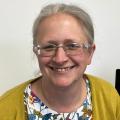
INVERCLYDE is facing a mental health crisis as care bosses reveal that local services are facing some of the worst problems in Scotland.
Central Greenock has been highlighted as a particular problem patch, with high numbers of homeless people and individuals living in temporary accommodation.
The area has the highest rate of people admitted to hospital for drug abuse anywhere in the whole country and more than double the rate of alcohol-related admissions than affluent areas of Inverclyde.
It has also recorded the biggest rise in the most serious mental health illnesses, like bipolar disorder, depression and schizophrenia
The alarming findings - outlined in a report for councillors - come as the council, NHS, police and third sector are brought together to form a new joint board to tackle the problem.
Council leader Stephen McCabe said: "We have been made very aware of mental health issues particularly amongst young people in recent times.
"With mental health we know there is a national crisis but reading this report we come to a view that there is very much a local crisis here.
"Some of the stuff in this report is very concerning."
The briefing was discussed at a meeting of the health and social care committee and member Jim Clocherty, who represents the centre of the town, said it showed that his constituency was in dire need of help.
He said: "There is a large problem in Inverclyde but the evidence shows that we have a huge problem in the centre of Greenock, and that has to be addressed."
Among issues highlighted by the report is an 18 per cent increase in the most serious cases of mental health illness.
The number of referrals to the child and adolescent mental health services (CAMHS) rocketed from 100 in 2016 to over 180 in February this year.
Mental health is often linked to adverse events in childhood and Inverclyde has the country's highest rate of kids on the child protection register as a result of parental drug abuse.
The mental health community response team for people in crisis is reporting a year on year rise in referrals with 683 in 2018/19, a total of 70 more cases than 2016/1`7.
In relation to psychiatric admissions to hospital, 87 per cent of patients come from the most deprived areas of Inverclyde.
Expert analysis says that admissions would be 64 per cent lower if there was no inequality gap.
The local authority's health and social care committee has decided to back plans for a new mental health programme board to provide leadership on facing up to the crisis.
Councillor Jim MacLeod welcomed the commitment to tackling the problems outlined in the report.
He added: "As someone who has suffered from mental health problems this is important."



Comments: Our rules
We want our comments to be a lively and valuable part of our community - a place where readers can debate and engage with the most important local issues. The ability to comment on our stories is a privilege, not a right, however, and that privilege may be withdrawn if it is abused or misused.
Please report any comments that break our rules.
Read the rules hereLast Updated:
Report this comment Cancel